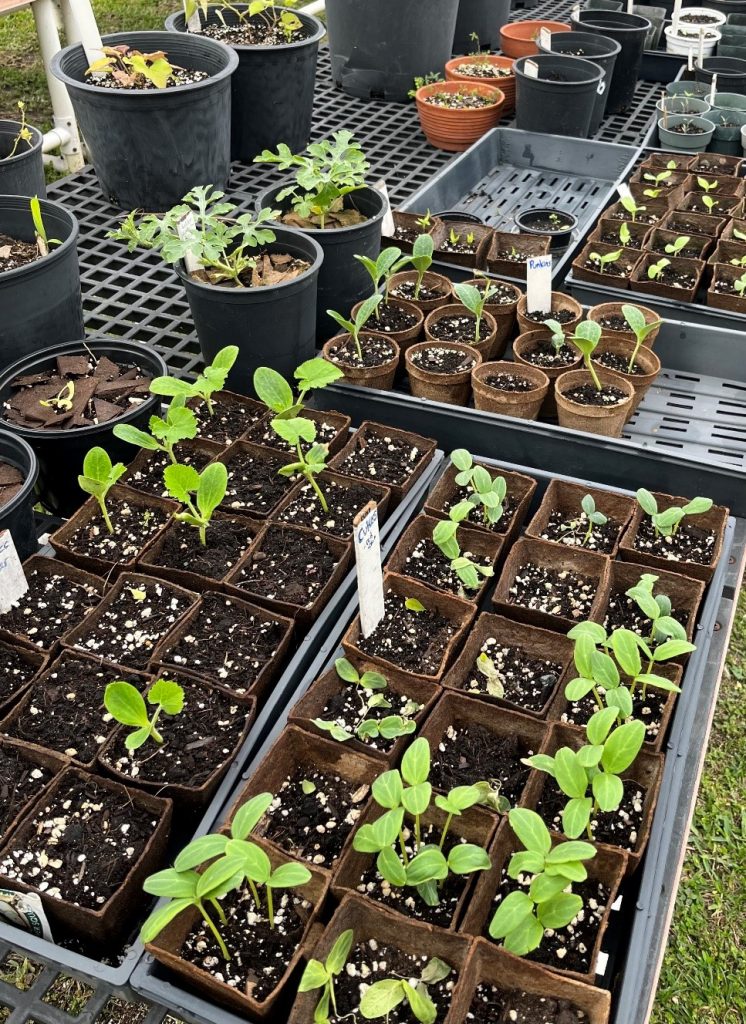Unlike the rest of the country, September is the time to begin preparing your Miami garden. While most of the country is thinking about the upcoming winter, we have been waiting for summer to end. Many vegetable crops grown in raised beds can’t handle high temperatures, and the daily rains can wash seeds out of the beds.
If you haven’t begun planning you garden now is the time to start thinking about what you want to grow. Find a reputable source of seeds, and research varieties that are heat and disease resistance to cope with South Florida’s subtropical climate. Try not to grow the same thing more than twice in the same spot to discourage soil-borne issues.
Bed Preparation
Start by inspecting and cleaning up the beds. If mulch is beginning to break down you can mix it into the soil. If it is still fresh move it aside and reuse it. Cover crops can be tilled into the soil, but weeds need to be removed (get those roots!). Clean up around any perennial plants (herbs and flowers) and re-mulch around them.
Inspect your soil. If you’ve been using the same soil for a while it may be time to test it. The Miami-Dade UF/IFAS extension office in the Redlands has free test kits available. Run your fingers through the soil and see if it has gotten sandy or is full of roots. You may want to add compost into the upper layers to add organic matter and nutrients to your soil.
What to Plant in September
Once your garden is prepared there are some seeds you can add directly to your beds, but other should be started in trays or small pots. These plants need a little more care when young, so wait until they are larger seedlings, ready for your beds when the weather gets a little milder.
Direct Sow (beans, peas, okra, squash/cucumbers, carrots, green onions)
Beans are a quick crop that grow rapidly in summer temperatures and start to set flowers after about 6 weeks. Bush-style beans are the easiest as they don’t require support, but after a crop or two they need to be replanted. Pole beans, as their name implies, need support to grow. They take longer than bush beans, but continue to produce until the end of the season.
Okra is another great crop to start now from direct seeding, as are peas, squash and cucumbers. Green onions (scallions) and carrots can also be started now, but their small seeds can easily be washed away in a hard rain, I prefer to wait a little longer.
Seed Starts (brassicas, nightshades, lettuce, chard, tropical spinach)
The brassica family, developed from wild mustard includes kale, cabbage, cauliflower, and collard greens. Their tender sprouts can collapse in hard rains and wind, and need to be protected from pests. Broccoli needs cooler weather and should wait another month or so before planting.
The nightshade family includes peppers, tomatoes and eggplants. As seedlings they thrive in the heat as the summer winds down, and require cooler temperatures before they set flowers and fruit. Start your seeds in small containers until they’re big enough to go in your beds.
“Anytime” Crops
Our climate allows some crops to grow all year and can be started any time, such as amaranth, mustard, papaya, pineapples and Seminole pumpkins.

